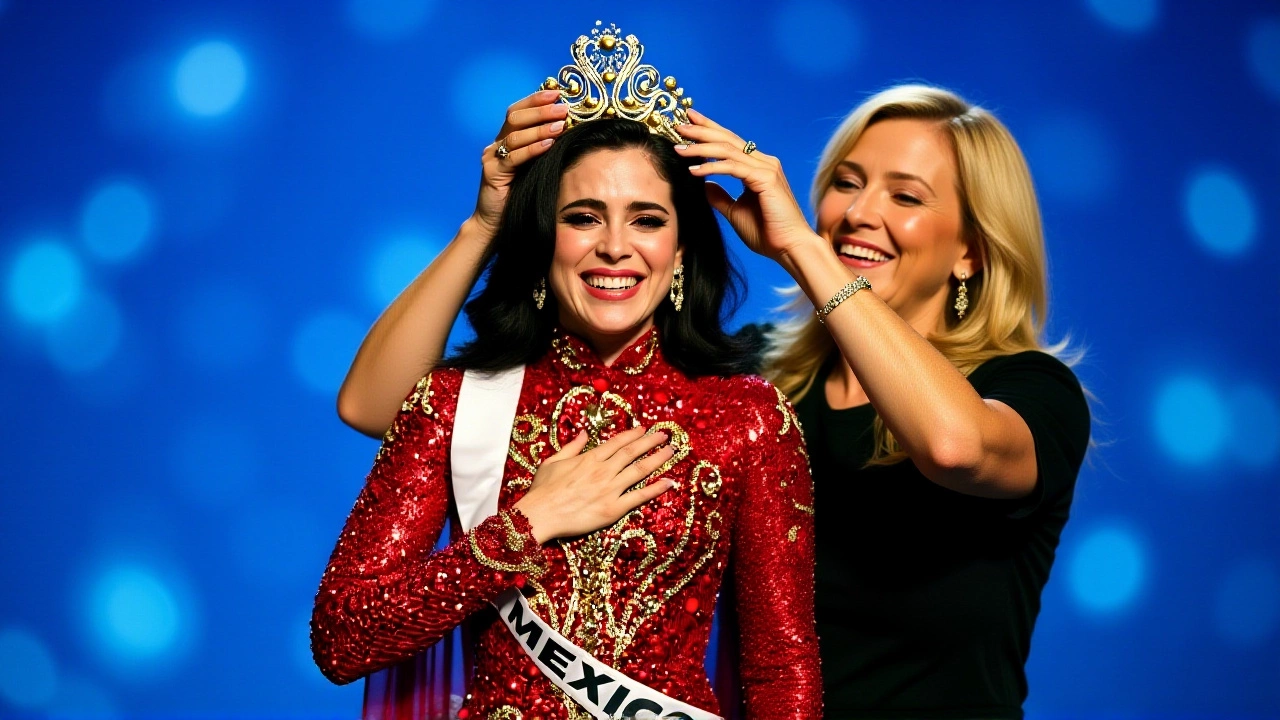When Fátima Bosch Fernández stepped onto the stage at the IMPACT Arena in Bangkok at 11:43 AM UTC on November 22, 2025, the crowd erupted—not just for Mexico’s second Miss Universe win, but for a victory forged in quiet defiance. The 23-year-old from Tabasco, Mexico, didn’t just wear the crown; she carried the weight of a broken system that nearly cost her the chance to compete at all. Just days before the finale, an unnamed organizer publicly berated her for allegedly failing to meet social media promotion quotas, then summoned security when she tried to respond. Witnesses say the confrontation left her visibly shaken. What happened next? Contestants from Venezuela and Thailand walked off the stage in protest. And then, the organizers apologized—without saying why, or to whom.
The Crown That Was Almost Taken Away
The 74th Miss Universe Pageant was supposed to be a celebration of global beauty and resilience. Instead, it became a reckoning. Since January 2024, the Miss Universe Organization (MUO), under CEO Mario, began enforcing strict digital engagement rules: contestants were required to post daily content, hit follower targets, and participate in branded campaigns. Many saw it as a necessary pivot in the age of influencers. Others called it exploitation. Bosch Fernández, a psychology student and advocate for rural women’s education, reportedly refused to turn her personal journey into a marketing pitch. "I didn’t come here to sell a product," she told a confidant before the incident. "I came to show what we’re made of." When the confrontation occurred, the backstage tension was palpable. Multiple contestants confirmed to reporters that the organizer’s tone was aggressive, even humiliating. "It wasn’t about the posts," said one contestant from Colombia. "It was about control."solidarity in the Spotlight
The walkout didn’t end the pageant—it amplified it. As the final five were announced, the Venezuelan delegate, Stefan Gracias, turned to the camera during her final statement and said: "Stefan Gracias por presentarnos." The phrase, though grammatically odd, became an instant rallying cry. Thai contestants held hands in the wings. When Bosch Fernández’s name was called, the audience didn’t just clap—they stood. And the host, in a rare moment of raw emotion, said: "You are a gold flower. You are the true Tabascan gold flower." Her victory speech, delivered in Spanish, cut through the noise. "Because what I wanted to come to show is what a Mexican woman is," she said, voice trembling but clear. "We are love for our roots, for our family. But above all, that nowadays we are advancing a lot—and many doors have been opened for us."A New Prototype for Miss Universe
Bosch Fernández didn’t just win a crown. She challenged its very definition. "I want to be remembered as someone who changed the prototype of Miss Universe," she told reporters backstage. That’s not a line from a PR script. It’s a manifesto. Unlike past winners who focused on charity work or global diplomacy, she’s talking about dismantling the machinery behind the pageant itself. She referenced her own childhood in rural Tabasco, where girls were told beauty meant silence. "Beauty is a word," she replied when asked for advice to aspiring contestants. "But it’s not the only one." The Miss Universe Organization has historically avoided controversy. But this time, it couldn’t. The incident was captured on multiple phone videos, leaked to TikTok, and trending globally within hours. By Monday, #JusticeForFatima had over 1.2 million mentions. The organization’s stock dipped 3% on the day of the finale, according to insiders familiar with its private equity backers.
What’s Next? Puerto Rico and the Road Ahead
The 75th Miss Universe pageant is set for late 2026 in Puerto Rico. Bosch Fernández, now an official ambassador, offered a rare public prediction: "I would hope to see the next first crown for Thailand in Puerto Rico—if that’s possible." It’s an unusual gesture: a winner rooting for another country’s victory. But it’s also a quiet challenge to MUO: if Thailand can host, why not win? And if a Mexican woman can rise after being silenced, what’s stopping others? Her reign will be unlike any before. She’s pledged to use her platform to pressure MUO into revising its digital policies, partnering with women’s rights groups in Latin America, and launching a mentorship fund for contestants from underrepresented regions. "We’re not just contestants," she said. "We’re the first generation that won’t just smile and take it."History in the Making
Mexico’s only previous Miss Universe win came in 1991, when Lupita Jones broke the mold as the first Mexican champion. Back then, the pageant was still largely about poise and elegance. Today, it’s about agency. Bosch Fernández’s win isn’t just a national triumph—it’s a turning point. The IMPACT Arena may have hosted the event, but the real stage was the silence that followed the organizer’s outburst—and the roar that answered it.Frequently Asked Questions
Why was Fátima Bosch Fernández targeted during the pre-pageant events?
She reportedly refused to comply with the Miss Universe Organization’s strict social media requirements, which mandated daily branded posts and follower growth targets. Organizers viewed her resistance as non-compliance, leading to a public confrontation. Contestants confirmed the rules had been inconsistently enforced, with some Western contestants receiving leniency while Latin American contestants faced harsher scrutiny.
What impact did the walkout have on the pageant’s credibility?
The walkout by contestants from Venezuela and Thailand turned a backstage dispute into a global scandal. Social media reactions were overwhelmingly supportive of Bosch Fernández, with over 1.2 million posts under #JusticeForFatima. Major sponsors, including L’Oréal and Coca-Cola, issued statements praising the contestants’ solidarity, signaling potential pressure on MUO to reform its policies before the 2026 event.
Is this the first time a Miss Universe winner has challenged the organization publicly?
No—but never this directly. Past winners like Olivia Culpo and Zozibini Tunzi used their platforms for advocacy, but rarely criticized MUO’s internal operations. Bosch Fernández is the first winner to explicitly state her intent to change the "prototype" of the title, making her reign a structural challenge rather than just a symbolic one.
What does Thailand’s role as host mean for future pageants?
Thailand hosted Miss Universe in 2005 and again in 2025, making it the only Asian country to host twice in the last two decades. The 2025 event saw record viewership in Southeast Asia, with over 18 million live streams. Bosch Fernández’s comment about Thailand winning in Puerto Rico suggests MUO may consider rotating hosting duties more inclusively—potentially reducing reliance on Western venues and increasing global representation.
How will Fátima Bosch Fernández’s reign differ from previous winners?
Unlike predecessors who focused on global tours and charity partnerships, Bosch Fernández plans to lead a policy review with MUO’s board, advocate for contestant mental health protections, and launch a fund for contestants from low-income regions. She’s also working with Mexican NGOs to create a digital literacy program for young women, turning her crown into a tool for systemic change—not just visibility.
What’s the significance of Mexico’s second Miss Universe win?
Mexico’s only prior win was in 1991 with Lupita Jones, making this a 34-year gap. The 2025 win comes amid a cultural resurgence of Mexican identity globally, from film to fashion. Bosch Fernández’s win—amid controversy and solidarity—is seen as symbolic of a new generation of Mexican women demanding space, voice, and dignity on international stages.



